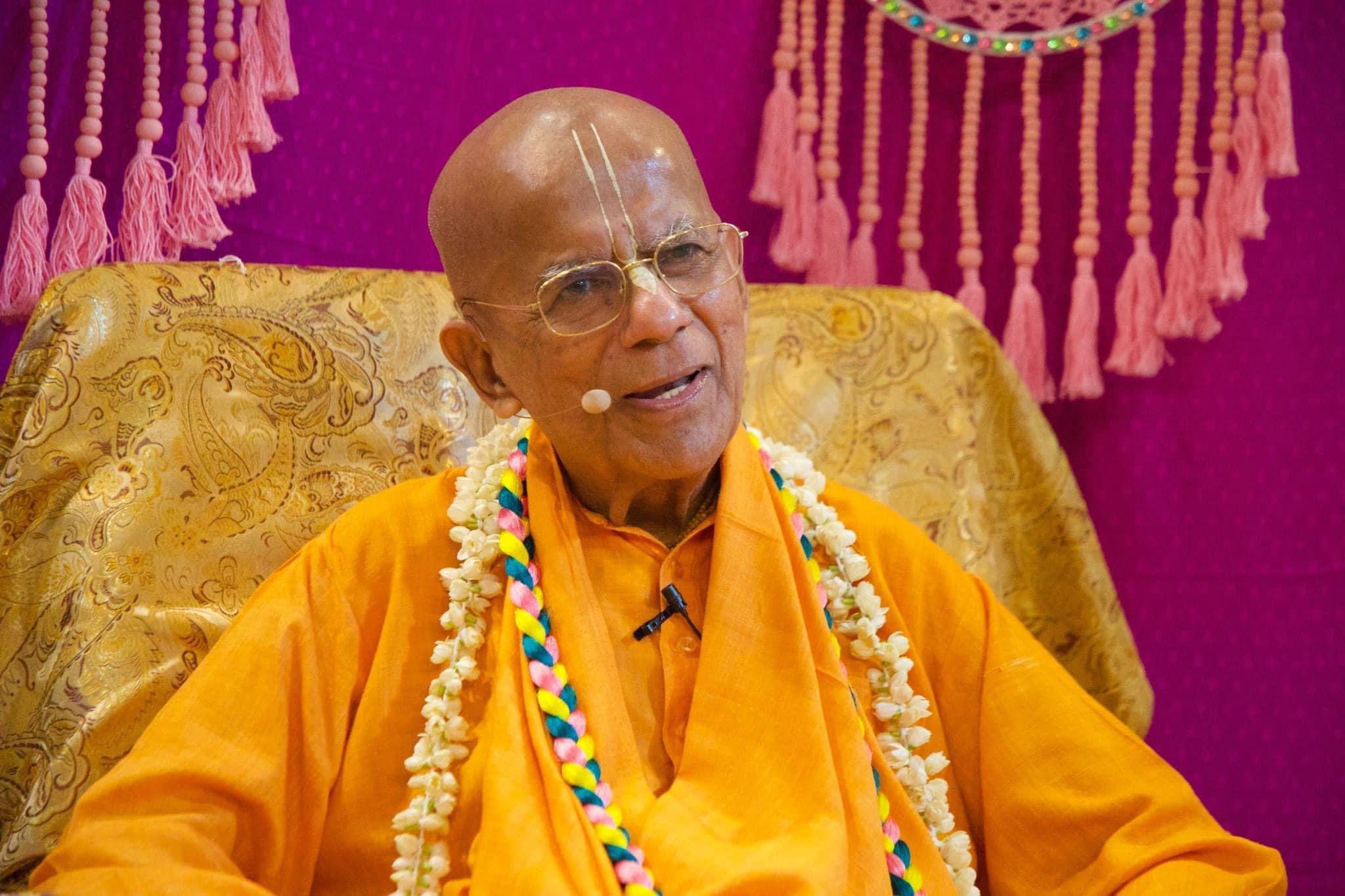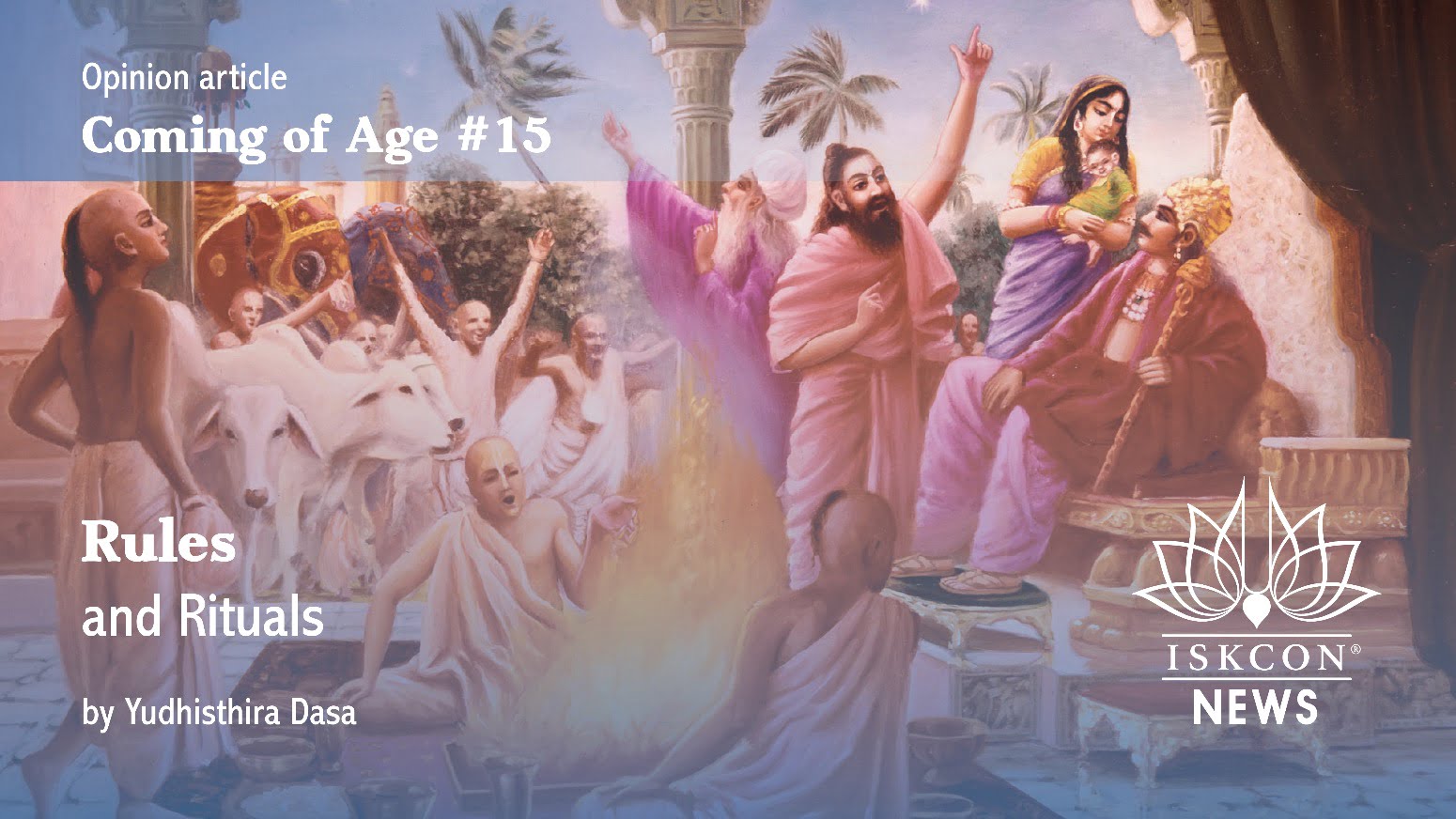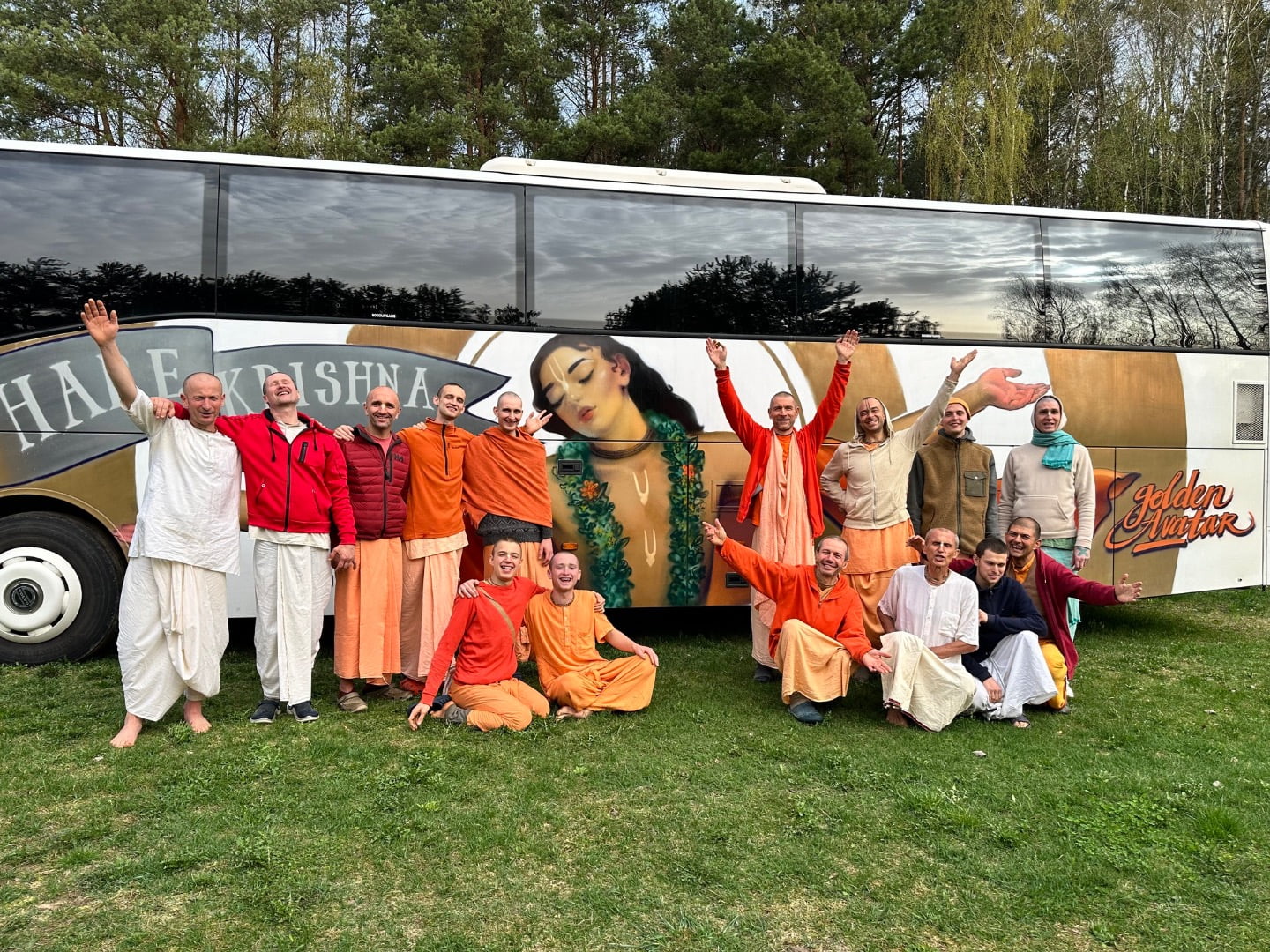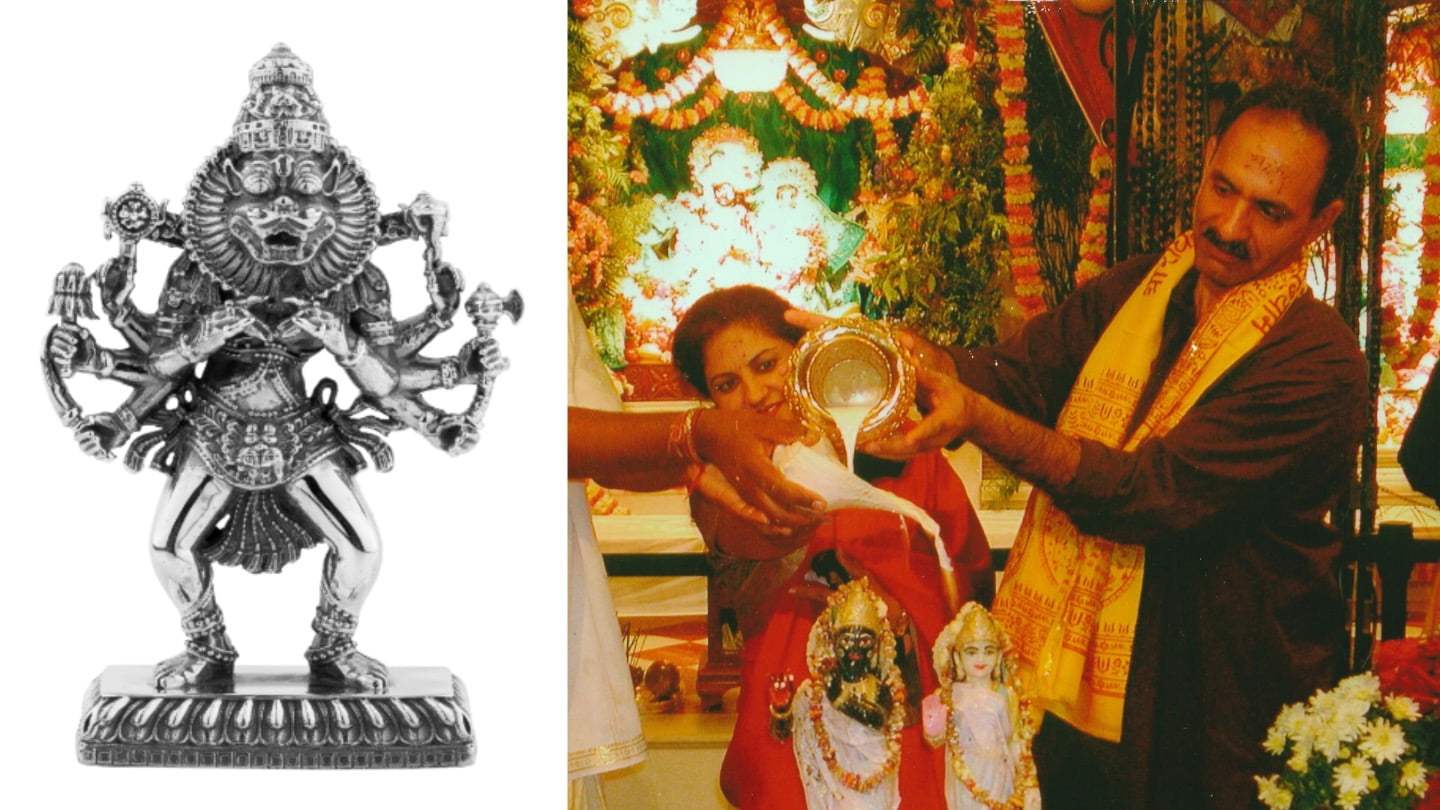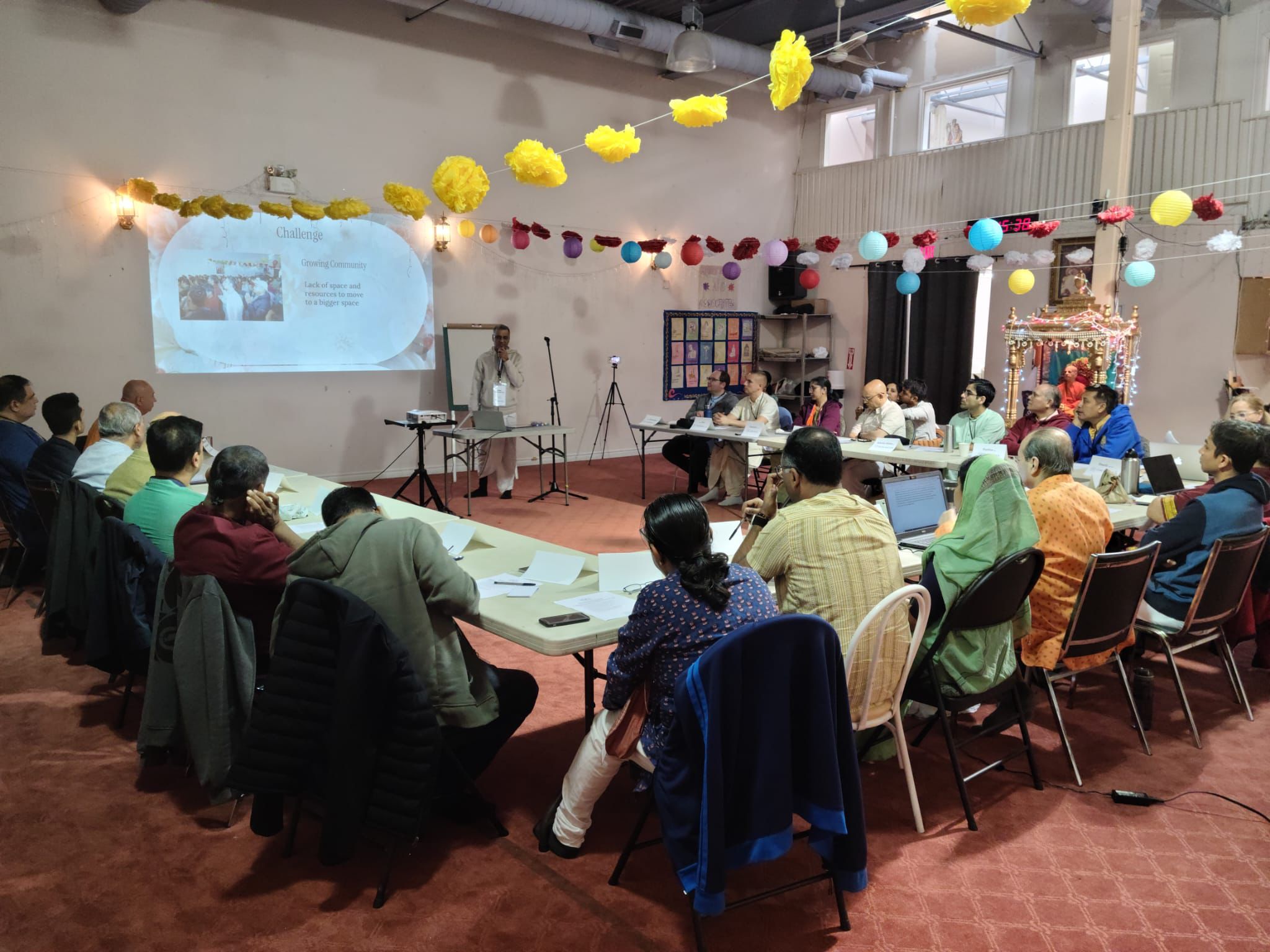Lessons From a Stop Light
By Kripamoya Dasa | Dec 05, 2009

I went right through a red stop light this morning. Straight through, without stopping at all. I was coming down a hill in my neighbourhood and had built up a little speed. I saw the traffic lights, and saw they’d turned red, but I didn’t want to stop. So I just continued.
Normally I’m a very careful driver and I obey all the rules. I always stop to let people cross the road, park only in the right places, and definitely stop at red lights. So why didn’t I stop at the lights this morning?
Because I was walking.
And because I was walking, the rules for car drivers didn’t apply to me. So I saw the red light and just carried on moving. Now, I do own a car and I drive it down that hill, but because I was outside my car the rules for car drivers did not apply.
And if you’re thinking that I’m using all this as an extended analogy to make a point – you’re right, here it is:
The soul is in the body like a driver is in the car. The car is the exterior shell of the driver, and the physical/mental body is simply the exterior shell of the soul.
According to the Vedas there are various rules for spirit souls when they live – just temporarily – in this world of physical bodies. Some rules give us a green light and some give us a red light. We have to follow them in order to make life progressive and smooth – for ourselves and for others.
At the time of death, followed by reincarnation, you no longer have the same body made of flesh and blood and a different set of rules applies. Or if you completely transcend the earthly body, realising that you are the soul within and that the body is a mere exterior shell; at those times certain rules are relaxed.
Thats why genuine liberated souls are freed from many of the obligations placed upon ordinary people. They don’t have to worship the gods and sages, or perform rituals to elevate their deceased forefathers, as all humans are required to do. They are not obliged to work or to amass funds or give in charity as all others are required to do. They can sometimes be seen to act in ways that are different from others, and Vedic society has different expectations from them. However, they still follow the same moral rules which govern interaction between human beings, for their hearts are moved now by compassion, kindness, and the intense desire to see others free from suffering.
But Srila Bhaktivinode Thakur cautions that we must not imitate them. He says that if one is still in bodily consciousness, to that extent he must follow the prescribed rules for his varna (his occupation) and his ashram (his life-stage). To try to imitate the activities of those who are free from bodily consciousness while you are still conditioned is inappropriate, unhelpful for your own progress, and can even be dangerous.
Worse still is if someone fancies that they have become enlightened when in fact they are still very much bound by lust, greed, envy, anger and so on. Liberated only within their imagination, they sometimes conclude that they have become very close to God, the eternal law-giver and origin of the Vedas. Imagining themselves to be enjoying an intimacy with God that elevates them above all His rules for ordinary people they mistakenly conclude that they have no need to follow any moral laws at all.
This premature enlightenment, followed by rejection of common morality is known as antinomianism by western theologians. Srila Visvantha Chakravarti Thakura, writing in his Madhurya Kadambini in the 18th century, says that one of the first tests along the spiritual path is utsaha mayi, the tendency for a person to think he knows a lot when in fact he is a beginner. After this comes taranga-ragini or ‘enjoying the waves.’ The spiritual aspirant experiences some of the early pleasures of enlightenment – like the surf on the shore of the ocean of enlightenment – and becomes a spiritual enjoyer rather than a continuing spiritual aspirant. Progress can be halted at this point until harder lessons are learned.
If immoral behaviour is engaged in at either of these points – because of the pride at having reached these points – then not only is progress curtailed but the sins of the spiritual aspirant force him to become degraded.
Eastern or Western doesn’t matter. If someone who was previously a moral, ethical, adherent to spiritual discipline becomes immoral in the name of spirituality, he or she has fallen at a most elementary hurdle on the path.
So before enlightenment: stop at the red and go at green; and after enlightenment: stop at red and go at green.
Definition of Antinomianism:
Antinomianism (from the Greek ἀντί, “against” + νόμος, “law”), or lawlessness (in the Greek Bible: ἀνομία,[1], “unlawful”), in theology, is the idea that members of a particular religious group are under no obligation to obey the laws of ethics or morality, and that salvation is by predestination only.[2] Antinomianism is the polar opposite of legalism, the notion that obedience to a code of religious law earns salvation.







